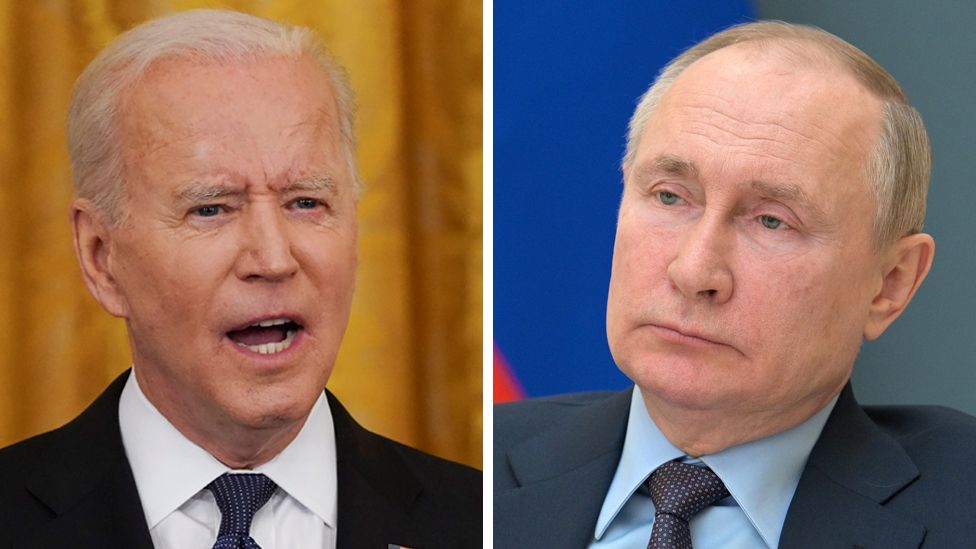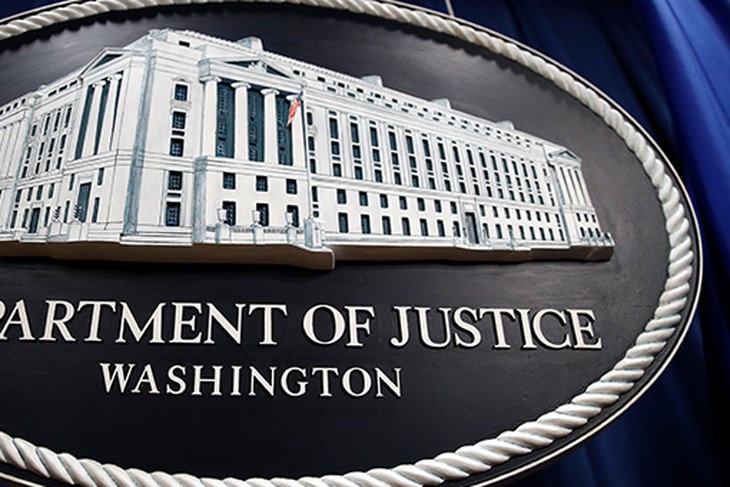Americans mostly have given up on familiar institutions for entertainment, guidance, or reassurance. What now do Hollywood, network news, the media in general, Silicon Valley, the NBA, NFL, MLB, or higher education all have in common?
A propensity to lecture Americans on their moral inferiorities, a general ethical decline in their own disciplines, and a strange obsession to acquire great wealth while living in contrast to what they advocate for others. Add also incompetence. Movies are mostly bad now. The network news is blow-dried groupthink. There is no “paper of record” anywhere. Twitter and Facebook no longer even try to hide their politicized contortions of warped rules and twisted protocols.
Professional athletes are now reminders of why no one ever wants to be “enlightened” by multimillionaire quarter-educated narcissists. The public a half-century ago lost faith in academia. It wasn’t just that most new bad ideas could be traced to the campus or that hothouse professors increasingly seemed both ignorant and arrogant, but rather their product—educating students—was defective. No one believes anymore a BA is synonymous with knowledge. More likely, it is a euphemism for incurring $100,000 in debt.
But until recently there were still a few institutions we considered sacrosanct, incorruptible, and invincible amid faith-based assertions, toxic woke fads, civil dissension, and hatred of the past. One certainly was the military. Another was “science,” or rather the scientists, researchers, and investigators who devoted themselves to disinterested empiricism. And, a third, was the sacred idea of the “law,” or the idea that Americans respect our statutes because they were crafted by ourselves and applicable to all, equally, and without exception.
All three have lost their luster. Americans do not trust them, at least not in the old way. Perhaps it was the 2020 perfect storm of plague, quarantine, recession, riot, a contentious election, and red/blue antipathies that ripped off the scab and exposed beneath something far different than what the public had assumed.
Protect or Proselytize?
The Pentagon seems to have lost its way. It has transmogrified into a cultural engine of change from a defensive force devoted to battlefield supremacy. The Defense Department is chasing its tail, supposedly on the scent of white supremacists of the armed insurrectionist sort who stormed the Capitol.
The only problem is that none of the rioters now sitting in jail without bail and in solitary confinement have even been charged with insurrectionary crimes, treason, or conspiracies. None used arms. None even possessed them inside the Capitol. None killed any law enforcement officer, contrary to what we were told. So far, no architects of the supposed insurrection—most likely a spontaneous riot of ragtag misfits—have been arrested. Four of the five who died were protesters. None died violently at the hand of another—except an unarmed military veteran who was shot entering a window by an officer, whose name, age, and race remain concealed, as does most of the video evidence of the Capitol melee itself. Thousands of hours of Capitol videos of the entire mess have not been released.
In other words, a woke military is pursuing an ideological witch hunt of its own based on the myth of an epidemic of armed insurrectionists in its ranks. Does the Pentagon scan its enlistments for any youth who rioted, burned, and looted all last summer? Is it afraid there are sympathizers of radical Islamists of the Major Nidal Hasan sort, the 2009 mass murderer at Fort Hood, whose killing spree of unarmed U.S. soldiers apparently worried then Chief of Staff General George Casey that his diversity initiatives might suffer?
Defense Secretary General Lloyd Austin, who promises to find the occult alt-Righters, is only following the directives of a progressive Washington elite that sees a racist or Trump supporter (terms it considers synonymous) under every American bunk.
The military has barged clumsily into highly contentious social and cultural minefields when there was no need to, other than to virtue signal wokeness. Cartoon recruitment ads now focus on enlisted soldiers who are the offspring of two lesbian mothers. More Americans know that the Pentagon subsidizes transgender reassignment surgeries than what the strategy for victory has been over the last 20 years in Afghanistan. It is not as if a Clausewitzian brilliant military—after stellar strategic success in Afghanistan, Iraq, and Libya—can now afford to turn its proven genius homeward to wake up America to address its primordial sins.
Americans increasingly cannot comprehend what motivates their supposedly most esteemed retired generals and admirals. Some in 2020 likely violated the military Uniform Code of Military Justice by attacking, personally and viciously, their commander in chief, as they weighed in on every controversial issue in a tinderbox summer of violence. Their only internal disagreement was whether their own president was Mussolini, or a Nazi emulator, or trying to recreate Auschwitz on the border, or should be removed before an election, or was a coward or a traitorous Russian asset.
Trump’s mere consideration in June 2020 of calling in federal troops to quell riotous, looting, violence and arson was blasted by retired military as tyrannical, Nazi-like, even seditious. But all those dangers later did not apply to stationing 30,000 armed soldiers in the capital amid barbed wire and barricades following the January 6 Capitol assault.
Now we are witnessing the second phase of an internecine war of retired generals and admirals. Once liberal former brass blasted Trump as a veritable traitor and fascist, it was inevitable that more conservative retired generals would step up to reply in kind. So in mirror-image fashion, now another group of retired generals and admirals likewise is blasting their current commander in chief, Joe Biden—as cognitively challenged and physically and mentally incapable of carrying out his presidential duties. Sow the wind, reap the whirlwind, as retired military officers descend into the spirit of the Balkans.
Yet Americans do not want their generals conducting political witch hunts of their enlisted ranks. They do not want retired admirals to be known as liberals or conservatives by the nature of their publicly expressed venom against sitting presidents.
They do not want the Pentagon weighing in on every contentious cultural and social issue or directing ad campaigns to virtue signal their political partisanship. They do want the military to win the wars it fights, to leave politics to their civilian overseers, and, in the manner of Martin Luther King, Jr., to look at the content of the character of their soldiers rather than, in the spirit of Al Sharpton, obsess over the color of their skins—or the partisan politics of the enlisted men. And they want a stop to retired military-industrial-complex generals and admirals becoming multimillionaires by contracting their past service expertise to enhance the bids of current defense contractors.
Policy or PR?
When the COVID-19 pandemic hit, spreading panic, superstition, false information, and rumor, we at least had “the science”—American science, the disinterested expertise that created the modern affluent and sophisticated world we take for granted.
But shortly thereafter “the science” started to baffle Americans. We were told to listen to the World Health Organization that assured us the virus was not transmissible, that travel bans were superfluous, that China was blameless, that the virus was static. All were not just lies, but Chinese-fed lies that scientists—scientists of all people—swallowed or aided.
Our iconic Dr. Anthony Fauci, rather than collating current research and hosting medical symposia, became a TV junkie and spin doctor. His narratives about our daily regimens kept changing to accommodate the political agenda deemed most influential at the moment. What followed was a pandemic version of Alice Through The Looking-Glass surrealism. For Fauci, masks were useless, then essential, then even better when two were worn. Vaccines alone would save us—but not until mid- or late 2021.
But then they mysteriously were ready in November 2020 and even mysteriously so announced, but only a few days after the election. Herd immunity would follow, or not—given that 60, 70, or maybe even 90 percent of the population needed to be vaccinated or to have had previously acquired immunity. The ancient trope of the “noble lie” resurfaced, as an increasingly desperate Fauci spun his prior politicized policies in terms of misleading the clueless public for its own good.
Fauci taught us vaccinations were our salvation and would free us from the virus tyranny—but only if we were almost all vaccinated. But then he insisted that even if we were vaccinated, we would still have to social distance. We would wear masks, even outdoors. And we would still face reinfection. So millions mused, “Is Fauci running a PR campaign to convince us that getting vaxxed is superfluous?”
Fauci first insisted that China was not culpable and that it was conspiratorial to suggest such a thing, only to concede that it was sort of, kind of, remotely possible that the virus was engineered in a Wuhan level 4 virus laboratory—despite the consensus of the “experts” that a bat gave us the virus. Anyone who even suggested that Dr. Fauci might have approved U.S. grants for gain-of-function research at the Wuhan lab was considered a dangerous crank—until it was conceded that he had done this and the conflict-of-interest Fauci went mute for a few hours.
Fauci is only a totem of the decline in public health expertise. When we were told the science mandated national quarantines, state and local officials on that prompt began arresting dissenting pastors, hair stylists, and gym owners—any who reopened their livelihoods in violation of the “science.” Except there was no science at all when 1,200 of our “health care professionals” swore to us that protesters, both violent and peaceful, could with impunity violate the quarantines, because their “science” dictated that exposure to the virus was less harmful than the mental anguish of not being able to demonstrate, scream, congregate, and march en masse against social injustice and police brutality.
When other scientists said the damage from lockdowns might well eventually outweigh the toll of the virus, they were cancelled as the “bad” (who will probably be proven right) by the “good” scientists who were proven wrong.
In the end, all Americans wanted from science was disinterested, humble, fact-based advice—how, why, and when could one become infected, what was the most likely treatment protocol to recover, and when exactly would the vaccination appear.
Instead, they got an ideological war reminiscent of something out of the 17th century when Galileo was put on trial by the “good” faux-scientific consensus of geocentrism for advocating the “bad” correct science of heliocentrism.
Finally, in 2021 it was not so much that Americans lost respect for the law as they were bewildered by it. Or rather they wondered whether it still even existed.
Laws or Laxity?
Is it illegal to enter the United States without permission? Or does unlawful entry warrant instant state subsidy and federal legal help to further violate the law? Is everyone or just a few anointed allowed to carve out an entire urban no-go zone that even the police dare not enter? Is there a crime such as arson or looting? Are there even criminals such as arsonists and looters anymore—or just those naïve enough to try torching buildings or stealing from pharmacies in small numbers and without ideological pretenses? Does attacking Jews and Asian Americans constitute “hate crimes”—or does it depend on the race, ideology, or ethnicity of the attacker?
Is defacing a monument or tearing down a public statue a crime or just woke exuberance? Are there good riots and good looting and good arson that are not indictable, and then again bad riots and bad looting and bad arson that are?
There are plenty of dangers when our important institutions lose their traditional sources of support. The Left inherently distrusts the military to the degree it cannot quite turn it into a people’s army of social change and an ideological tip of the spear. It also has contempt for science that believes in absolute cannons and remains the lone atoll in the academic sea of relativism that long ago absorbed the humanities and social sciences. And the Left despises the law as an ossified obstacle to social change. “Critical theory” is the reductionist idea that equality of result and “equity” alone adjudicate whether murder is murder, theft is theft, and a border is a border.
Most conservatives and traditionalists have given up on their once cherished FBI that transmogrified into James Comey’s “I cannot recall” and “I don’t remember” ideological swamp. Ditto the CIA and NSA run by the likes of partisan wheeler-dealer John Brennan and partisan incompetent James Clapper, who both lied under oath with impunity and politicized the very security agencies of the United States.
Our most important and cherished institutions are losing the trust of Middle America. I doubt they will easily recover it, or find any such loyal supporters among their new coterie of fair-weather, progressive sycophants—and to the detriment of us all.










